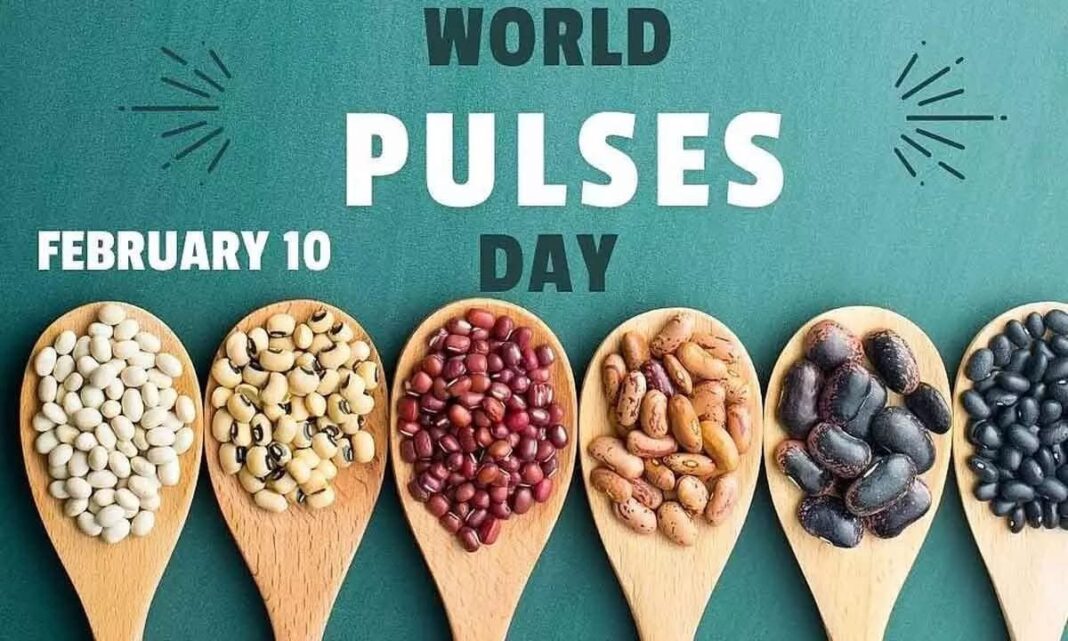Celebrating World Pulses Day 2025: The Power of Pulses for Nutrition, Agriculture, and Sustainability by Brent Simon
Each year on February 10, the world celebrates World Pulses Day, a global initiative that highlights the importance of pulses in nutrition, agriculture, and food security. This international observance was proposed by Burkina Faso to raise awareness about the benefits of pulses in addressing food challenges, improving soil health and supporting sustainable agricultural practices.
Pulses are edible seeds of leguminous plants that grow in pods. They include lentils, chickpeas, beans, and peas, which are cultivated and consumed worldwide. Unlike other crops, pulses are defined as dry grains and do not include fresh beans or soybeans. These staple foods have been an integral part of human diets for centuries, providing essential nutrients and sustainable agricultural benefits.
Pulses are among the most nutrient dense foods, making them a vital component of healthy diets. They offer:
· High-quality plant protein: Essential for muscle growth, repair, and overall health, making them a valuable alternative to animal protein.
· Rich fiber content: Support digestive health, regulates blood sugar, and contributes to heart health.
· Packed with essential vitamins and minerals: Including iron, folate, potassium, and magnesium, which are crucial for immune function and overall well-being.
· Gluten-free and low glycemic index: ideal for people with dietary restrictions or managing diabetes.
Beyond their nutritional value, pulses play a crucial role in sustainable agriculture by improving soil fertility through biological nitrogen fixation. Unlike other crops that require synthetic fertilizers, pulses naturally pull nitrogen from the air and enrich the soil, reducing the need for chemical inputs. This process:
· Enhances soil fertility.
· Reduces dependency on synthetic fertilizers, lowering production costs.
· Improves crop rotation systems, breaking disease cycles and increasing yield potential.
Pulses are highly resilient to harsh climatic conditions, making them essential for climate adaptation strategies. Many varieties thrive in semi-arid and drought-prone regions. Requiring significantly less water than other protein-rich crops. Their ability to withstand extreme conditions makes them a valuable crop for climate-smart agriculture, ensuring food production remains stable even in changing weather patterns.
As the global population continues to grow, ensuring access to affordable and nutritious food is critical. Pulses contribute to food security in several ways:
· High yield potential in small farming systems.
· Long shelf life, reducing post-harvest losses and ensuring availability year-round.
· Affordable protein source, making nutritious diets accessible to low-income populations.
The global pulse market presents significant opportunities for farmers, traders, and agri-businesses. Investing in pulse production and value-added processing can:
· Increase farmer incomes, particularly in developing nations.
· Support export markets as demand for plant-based proteins rises.
· Promote rural development, creating jobs in farming, processing, and distribution.
Countries with strong pulse production have the potential to diversify their agricultural economy and reduce reliance on imported food.
As we celebrate World Pulses Day 2025, individuals, policymakers, and farmers are encouraged to incorporate more pulses into daily diets for better health. Support local farmers by purchasing locally grown pulses. On an administrative level, leaders can promote sustainable pulse production and market expansion and invest in research and innovation to enhance pulse productivity and climate resilience.
Pulses are more than just food- they are a solution for nutrition, sustainability, and economic empowerment. This World Pulses Day lets recognize their role in shaping a healthier planet and a more resilient future!





